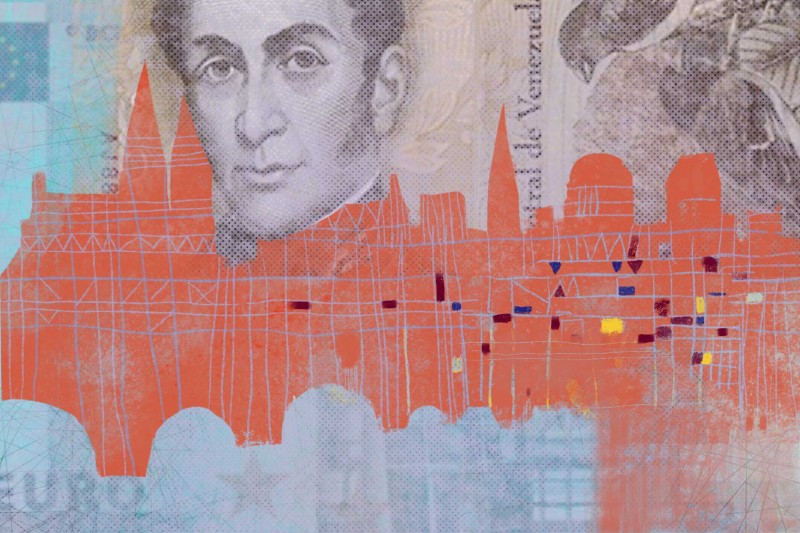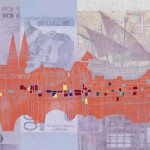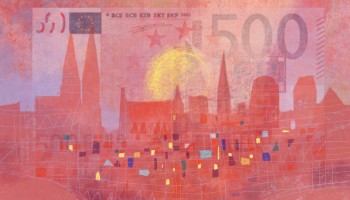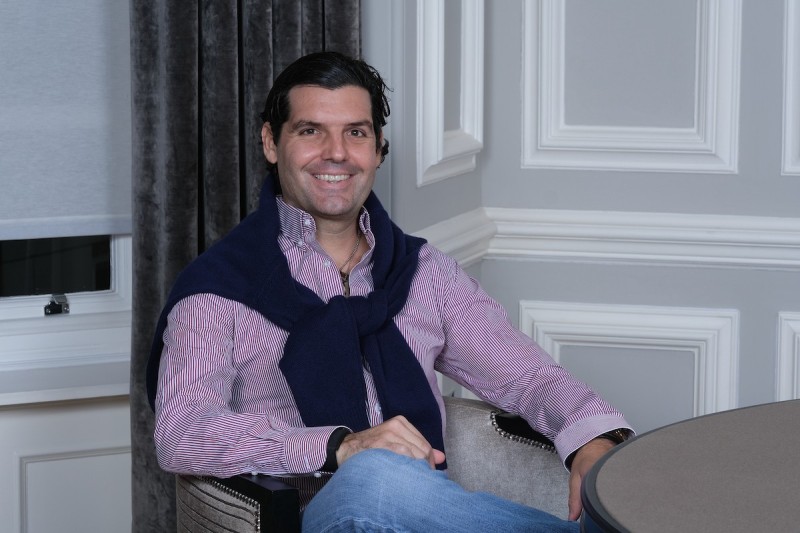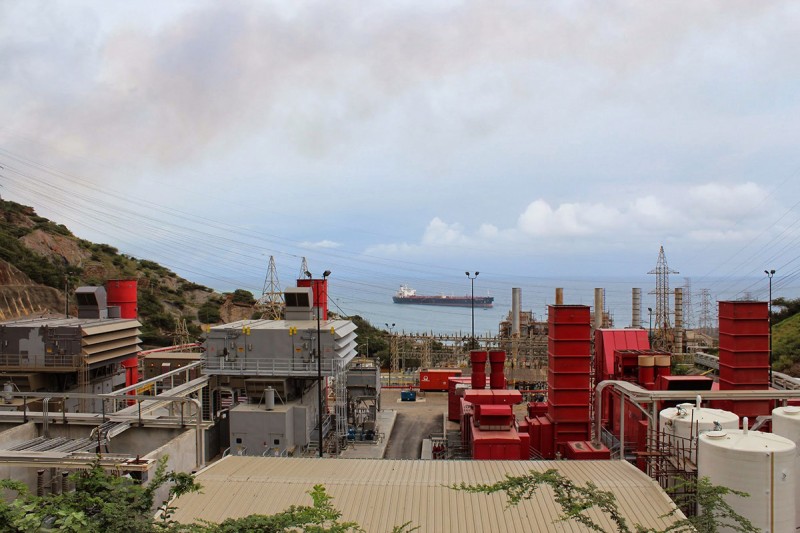As Venezuela fell into ruin, Alejandro Betancourt López was jetting around Europe on his private plane, making high-profile investments in a Spanish sunglasses start-up, and a bank in Senegal.
But Betancourt’s high-flying lifestyle could soon be grounded.
Although he has so far managed to avoid the criminal charges laid against his associates, who stand accused of looting their country’s oil wealth, sources in the U.S. and Spain say authorities are investigating the well-connected Venezuelan businessman, who made a fortune in the electricity sector via no-bid contracts from the government of the late Hugo Chávez.
Now, journalists have uncovered a network of Luxembourg-based firms connected to companies at the heart of a global probe into corruption in Venezuela.
One of Betancourt’s closest associates, Francisco Convit, is on the run from U.S. authorities, wanted for his alleged role in a conspiracy to launder $1.2 billion in embezzled funds from Venezuela’s state-owned oil company Petróleos de Venezuela, S.A. (PDVSA). Convit headed companies in different countries that moved money from several corrupt schemes, including one in which he and Betancourt allegedly overcharged the government $2.9 billion to build power plants.
Many of those companies and their jurisdictions are known to U.S. officials, who began investigating Convit and others for allegedly laundering oil money in Miami through American banks. Authorities were aware that some illicit funds were transferred from Venezuela to European countries and a portion ended up in Luxembourg.
But they were unable to link Convit or Betancourt to this money, a source familiar with the investigation told the Miami Herald, which collaborated with OCCRP on this story.
Now, as part of the OpenLux project, journalists have uncovered four Luxembourg firms controlled by Betancourt.
One of these firms was set up by a Dutch company headed by Convit, and all four are connected to companies elsewhere that the two men control, and that are under investigation for money laundering.
At least three of the newly discovered Luxembourg firms conducted financial transactions with companies under investigation by U.S. authorities, raising the question of whether they were part of the same network.
About the Project
Alejandro Rebolledo, a Venezuelan lawyer and anti-money laundering expert, said Luxembourg is an ideal place for people like Convit and Betancourt to hide illicit cash. They used the country, along with other opaque jurisdictions, to set up firms and move funds between them, he said.
“This is a network of companies that creates layers to transfer money in order to diversify it and hide it,” Rebolledo said.
Betancourt maintains he has done nothing wrong.
“Mr. Betancourt’s assets and sources of money are perfectly legal,” his lawyer, Jon Sales, said in a statement to the Miami Herald.
“They are not hidden. In fact, his interest in Luxembourg is publicly disclosed for the world to see. He is a legitimate and very successful businessman who has not broken any law.
The ‘Bolichicos’
Convit and Betancourt were childhood friends, and attended the exclusive Instituto Cumbres school together in Caracas. By the time they came of age, Chávez, a former army lieutenant colonel, had come to power and launched a sweeping series of socialist reforms.
Chávez called his movement a “Bolivarian Revolution”, after the Venezuelan national hero Simon Bolívar, a 19th-century general who led several countries to independence from Spain. But the revolution soon became mired in corruption, and the situation only got worse under Nicolás Maduro, who took over as president when Chávez died in 2013.
Venezuela is now in the grip of a political, economic, and humanitarian crisis. Shortages of food, medicine and jobs –– along with brutal crackdowns against those opposing the government –– have prompted more than 5 million people to flee the country.
Many of the oil-rich nation’s problems are connected to corruption. Those who looted Venezuela’s coffers under Chávez and Maduro became known ironically as “Boligarchs,” while an elite clique of well-connected young men, including Convit and Betancourt, were christened the “Bolichicos.”
On his website, Betancourt credits his rise in the business world to “entrepreneurship,” but doesn’t mention the considerable boost he got via contacts at the top of the Venezuelan government.
Betancourt was not yet 30 years old when he co-founded Derwick Associates, a Venezuelan company that Convit directed, which received contracts to build power plants directly from companies run by Chávez’s government, without going through a competitive bidding process. Derwick then overcharged the government by $2.9 billion, according to a report by the Venezuelan chapter of the anti-corruption group Transparency International.
Derwick Associates, along with sister companies in jurisdictions like Panama and Delaware which are the subject of numerous corruption allegations, are at the center of the Bolichicos’ transnational business empire. In a series of questionable financial maneuvers, some of their profits from electricity and oil deals were funnelled into Swiss bank accounts and to connected companies in Barbados, Panama, and Luxembourg.
The searchable version of the Luxembourg registry reveals four firms owned by Betancourt that have links to Derwick companies. One key company is Latin American Ventures, which received assets five years ago from a Derwick firm in Barbados. The transfer was made via a so-called contribution in kind, which describes a capital increase not from cash, but via other means.
In 2011, barely a year after Betancourt got into the electricity business, he and Convit had appeared as directors of a new company, the Barbados-registered Derwick Oil & Gas Corporation. Using that company, they managed to quietly gain a portion of the rights to seven Petrozamora oil blocks in Venezuela’s Lake Maracaibo region, as part of a joint venture with the Russian financial institution Gazprombank.
Some oil profits from Petrozamora were later transferred to Latin American Ventures, which was incorporated in Luxembourg in 2015 with $100,000 capital. By the end of that year, vast sums had been moved from Derwick Oil & Gas, and Latin American Ventures’ accounts were bursting with more than 253 million dollars.
On paper, Latin American Ventures is owned by a Dutch foundation called Stichting Administratiekantoor DOG. The foundation’s director was Convit until he left in September, 2018, two weeks after the U.S. indicted him for conspiracy to commit money laundering.
The post was filled by Orlando José Alvarado Moreno, a key player in the Bolichicos’ business empire. Alvarado has been a Derwick director in Caracas, and appears as an officer in three of Betancourt's Luxembourg companies.
Operation Money Flight
Latin American Ventures also received a $5.5 million loan from a company called Vencon Holdings Investment Inc., which received embezzled Venezuelan state funds, according to an investigation U.S. authorities have dubbed “Operation Money Flight.”
Vencon is a British Virgin Islands company linked to Convit and another person whom U.S. authorities referred to in their criminal complaint as "Conspirator 2.” The Miami Herald in November 2019 reported that "Conspirator 2" had been identified as Betancourt.
Now, a Spanish justice official has told OCCRP that Betancourt has caught the attention of authorities in that country too. Witnesses have named Betancourt as a co-conspirator in a scheme to embezzle and launder funds from PDVSA.
"There are people under investigation both in Spain and in the U.S. who, in their respective statements to the authorities, are implicating Betancourt in defrauding PDVSA," said the source, adding that Betancourt is under investigation for embezzling “hundreds of millions of dollars."
U.S. authorities are also looking into individuals they believe exploited a currency exchange system that the Venezuelan government put in place from 2003 to 2019, to help industries deemed important to the national interest.
The government implemented the system to mitigate damage from Venezuela’s plunging currency, the bolivar. Selected companies were allowed to buy U.S. dollars at low rates in order to import materials. But the system quickly became riddled with corruption, with beneficiaries exchanging those dollars on the black market at huge mark-ups.
American investigators scrutinizing the currency exchange scam requested Swiss bank records for companies including IPC Investments Corp, a Barbados firm linked to Betancourt, and Vencon, according to the Swiss financial investigative reporting website Gotham City. The companies asked the courts to block the request, but the Swiss Federal Tribunal ordered the release of the bank records.
The Tribunal said in its judgement that companies were part of an operation that, “thanks to corrupt payments made to Venezuelan officials ... more than 4.5 billion U.S. dollars would have been embezzled … mainly through accounts opened in Switzerland.”
While the court did not name IPC Investments Corp or the other companies, they were later revealed by Gotham City.
Latin American Ventures’ balance sheets show that it transferred 16 million euros to IPC Investments Corp, calling it loan repayment.
Betancourt used IPC Investments Corp as a vehicle to invest in a Canadian oil company, Pacific Exploration and Production Corporation. (The company restructured and changed its name in 2016, and Betancourt divested.) He also used it to invest in BDK Financial Group, a Luxembourg bank that does business in West Africa. IPC Investments Corp has transferred money to another of Betancourt’s Luxembourg-registered firms, Gainsboro Developments.
Gainsboro lists Betancourt’s Caracas-based associate, Alvarado, as a member of the board. The firm has been used as an intermediary to shift money between the Bolichicos’ offshore companies.
Another Luxembourg-registered firm, Ming International, received a 53-million-euro loan from IPC Investments Corp. It also took a loan from Centro Tecnológico de Turbinas, a Venezuelan company linked to the electricity sector and to Derwick Associates.
Sunglasses and Private Flights
Through Ming, Betancourt manages 65 percent of the shares in a firm that owns Hawkers, a Spanish sunglasses company that Betancourt runs.
The source close to the U.S. investigation into stolen oil money told the Miami Herald that he was aware of Gainsboro and Ming investments in Andorra, Spain, and Switzerland, but officials had not directly connected those companies to Luxembourg.
He said investigators did not know about Latin American Ventures or O’Hara Financial S.A., another Luxembourg-registered company that lists Alvarado as the auditor.
Through O’Hara Financial S.A., Betancourt owns a Dassault Falcon 2000, an executive jet with the tail number N717FM. According to data from ADSB-Exchange, a cooperative flight-tracking database, the Falcon has flown frequently in the past couple of years.
In early 2020, before the COVID-19 pandemic halted most air travel, the jet registered two dozen flights within Europe. In 2019, the Falcon made upwards of 70 trips to European cities including Moscow. Russian investors have many close business links with Venezuelans — including with Betancourt and Convit, through their earlier Petrozamora oil field exploitation contract with Gazprombank.
Toward the end of that year, on November 3, the Miami Herald published the first article revealing that Betancourt was “Conspirator Number 2.”
On November 12, Altea Services, the society that was administering the accounts of three out of the four companies linked to Betancourt, resigned, and renounced their domiciliation agreement.
The following day, Betancourt’s jet flew to Luxembourg.
Altea did not respond to a request for comment, but under Luxembourg law, administrators are recommended to terminate a domiciliation agreement if the law regulating commercial companies is breached in any way, according to Luxembourg-based law firm Martin Avocats.
Many of Betancourt’s flights were likely business trips, but some were surely for pleasure. The Falcon has flown to European cities like Amsterdam, Athens, and Rome, and touched down in the Azores, a picturesque Portuguese island group and tourist destination.
While Betancourt was jet-setting around Europe, his home country was falling apart. As money flowed out of Venezuela and into offshore companies and accounts controlled by a tiny elite, most of the population was engaged in a desperate struggle to survive.
Last year, the United Nations World Food Programme reported that one in three Venezuelans don’t have enough to eat. According to the International Monetary Fund, the number of people living in extreme poverty jumped from 10 percent in 2014 to 85 percent in 2018.
Rebolledo, the Venezuelan anti-money laundering expert, welcomed any sanctions or corruption charges against the Bolichicos, adding that their lifestyles are striking considering the dire state of their country.
“Those so-called businessmen should be on a list that does not allow them to continue strutting around with their extravagance while our people are dying of poverty,” he said.
Correction: This story has been amended to more accurately describe Alejandro Betancourt's investment in a Canadian oil company. OCCRP regrets the error.
